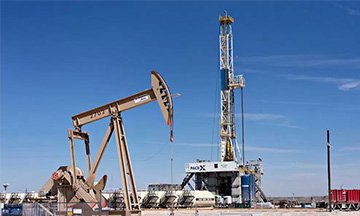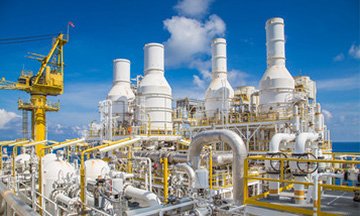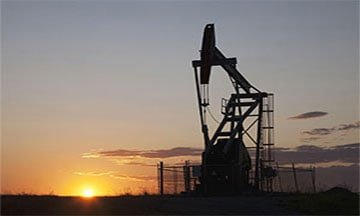International Gas Business Management
Course Overview
What is oil and gas business management?
Gas business management is one of the most important courses that will enable the participants to exploit one of the most common world’s resources successfully. There has been an increasing utilisation of energy in industries that have led to the rapid and fast expansion of the gas business exploitation, usage, and processing. It is one of the industries that are vital in driving the world’s economy.
The ability to produce, process, and use gas energy in industries and other facilities in huge quantities is highly complex, very cost-intensive, and will require state-of-the-art technology. Natural gas offers an alternative energy source by using fossil fuel which is better as compared to Oil and coal. It also acts as the source of industrial hydrocarbons and sulphur for petrochemical feedstock. Its popularity is expected to increase rapidly in the future due to two important aspects: the provision of a more sustainable energy supply and the provision of the services needed for the society’s improvement that will reduce the effects of global climate and the general environment.
How can we capitalise the gas market?
With the environmental issues arising from the use of natural gas and fossil fuel, there are a lot of challenges related to alternative energies utilisation, and substitutions that will need a recognised manager who will have a great understanding of the industry, including evaluation and decision-making skills, economics, and issues that might face the gas industries soon.
The course intends to highlight the following:
- Development of skills for evaluation and development of techniques to navigate the gas market
- Efficient and effective industrial operations
- The gas industry’s economy
- Hydrocarbon chain process considerations
Course Objectives
The main goals of this course shall be to help the participants to be able to:
- Learn and grasp the ideas of economic evaluation benchmarking and determination of investments
- Recognise how gas processing fits in the hydrocarbon production chain and identify the main issues at the gas plants
- Determine different methods that are utilised in gas purification
- Have a better and deep understanding of natural gas and how it is found in nature as well as how it is processed
- Understand the oil and natural gas facilities terminology
- Understand the underlying principles of gas measuring and the most common devices that are used in gas measuring, plus all the techniques used in the process
- Understand and discuss various gas types such as NGL, LPG, propane, ethane, and butane and their place in the markets
- Distinguish the various technologies used in gas conditioning and processing and choose which most appropriate technique for different processes
- Recognise different technical drawings, understand common and major processes of the natural gas plants and the gas market
- Comprehensive understanding of the dynamics of the entire natural gas valuation, chain addition from wellhead and burner tip
- Gain useful insight into the methods of gas production
Training Methodology
This collaborative International Gas Business Management training program (course name) will comprise the following training methods:
- Lectures
- Seminars & Presentations
- Group Discussions
- Assignments
- Case Studies & Functional Exercises
Like all our acclaimed courses, this program also follows the ‘Do-Review-Learn-Apply’ model.
Organisational Benefits
- An organisation will have the opportunity to have a delegate who fully understands the fundamental economics of the gas industry
- They will have an assurance that the course is taught by professionals who have great experience in their various fields
- Regular training of other employees
- They will have employees who know details of gas market operations at all levels of the chain
- They will have managers who will have gained an understanding of the structure and operation of the gas industry
Personal Benefits
- Professionals will be able to recognise the importance of the process operations in relation to gas production and transportation
- Ability to contribute to cooperate negotiations using the correct and appropriate terminology
- A better understanding of the gas market and industry as large
- Great and in-depth understanding of the challenges facing the gas industry
- Develop the necessary skills to assist in the evaluation of cooperating opportunities
Who Should Attend?
This course will interest the following professionals:
- Auditing personnel
- Trading professionals
- Equity analyst and bankers
- Business development managers
- Government regulators
- Compliance officers
- Law professionals
- Joint venture officers
- Negotiators and contracting professionals
- Tax and finance advisors
- Supply planners and scheduling professionals
- Geoscience and engineering professionals
- Corporate planning professionals
- Anyone who needs to broaden their understanding of the structure and economics of the gas industries
Course Outline
Module 1: Hydrocarbons sources and natural gases sources
- Exploration activities
- Types of well
- Different exploration methods
- Fundamentals of fossil fuel chemistry
- The gas production process
- Hydrocarbons and their relation with gas
- Gas geology
- Origins of hydrocarbons deposition
Module 2: Gas and the energy industry
- Gas production from the wellhead to the market
- Sales gas transmission
- Distribution
- Exploration and production
- Underground storage
- Processing and production
- Gas processing traditions
- NGL separation
- Nitrogen removal
- Acid gas reinjection
- Mercury removal
- Dehydration
- Excess water removal
- Dehydration
- Dew point control
- Gas sweetening and sulphur recovery
- Excess water removal
- Natural gas fundamentals
- Introduction
- Natural gas origin sources
- Natural gas resources
- Natural gas composition and classification
- History
- Vapor separation methods
- Terminology
- Raw gas contaminants
- Chemistry of Gas and Oil
- Characteristics of natural gas
Module 3: Natural gas sources
- Production
- Transportation
- Pipelines
- Ship transportation
- Gas fields developments
- Well fluids and surface production
Module 4: Logistics of the natural gas business
- LNG (liquefied natural gas)
- Transportation methods of LNG
- Major LNG exporting nations
- Why LNG?
- Compression and refrigeration
- Nitrogen rejection process
- Adsorption process (activated carbon) storage system
- Cryogenic process
- Absorption process (using lean Oil or solvent) membrane separation
- Storage tanks
- Metering stations
- Valves
- Control stations
- Pipeline components
- Natural gas transportation
- Sampling
- Vapour recovery system LACT unit
- Compressor stations
- Pipeline operations
- Gas flow measurement
- Basic of Gas pipeline
Module 5: Exploration drilling
- Gas leasing process and terms
- Drilling operations
- Types of wells
- Searching for Oil and gas
- Where and how does drilling take place?
- Natural gas production and processing operations
Module 6: Risk management and dispute prevention
- Overview of LNG financing options
- ECA and multilateral agency funding
- Project financing and structure financing
- Balance financing
- Capital markets
- Asset-based financing
- Disputes
- Dispute resolution
- Causes of disputes
- Arbitration and expert determination
- Handling risks
- The risk matrix
- Risk management techniques
- LNG project financing essentials
- Investment decision-making
- Financial structures in LNG
- Key-value drivers in LNG financing
Module 7: Structures and relations in the gas industry
- Integrated and non-integrated companies
- Non-integrated companies
- Integrated companies
- Operating companies and service companies
- Local, multi-National, and National gas companies
- Major international gas companies
- Major national gas companies
Module 8: Regulation and legislation
- Future trends in natural gas
- Mid and small-scale LNG
- Lates changes and movements in LNG trading
- Trends in LNG markets
- Hubs vs Oil for price setting
- Impact of shale gas
- Market shifts in importation and liquefaction
- Floating and niche LNG concepts
- Regulations
- The market under regulation
- The history of regulation
- The EIA
- Fiscal and legal regimes worldwide
- Production and sharing arrangements











